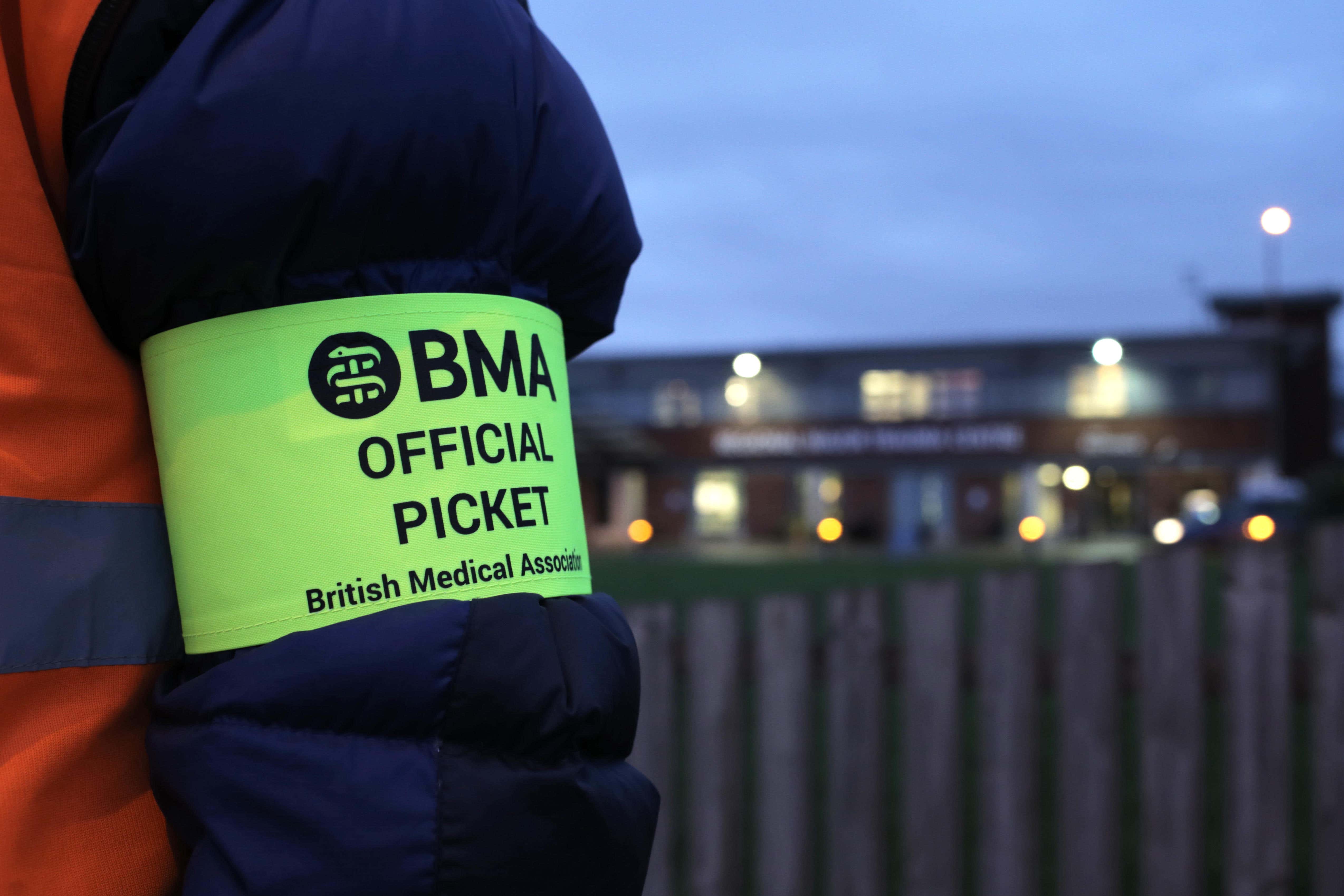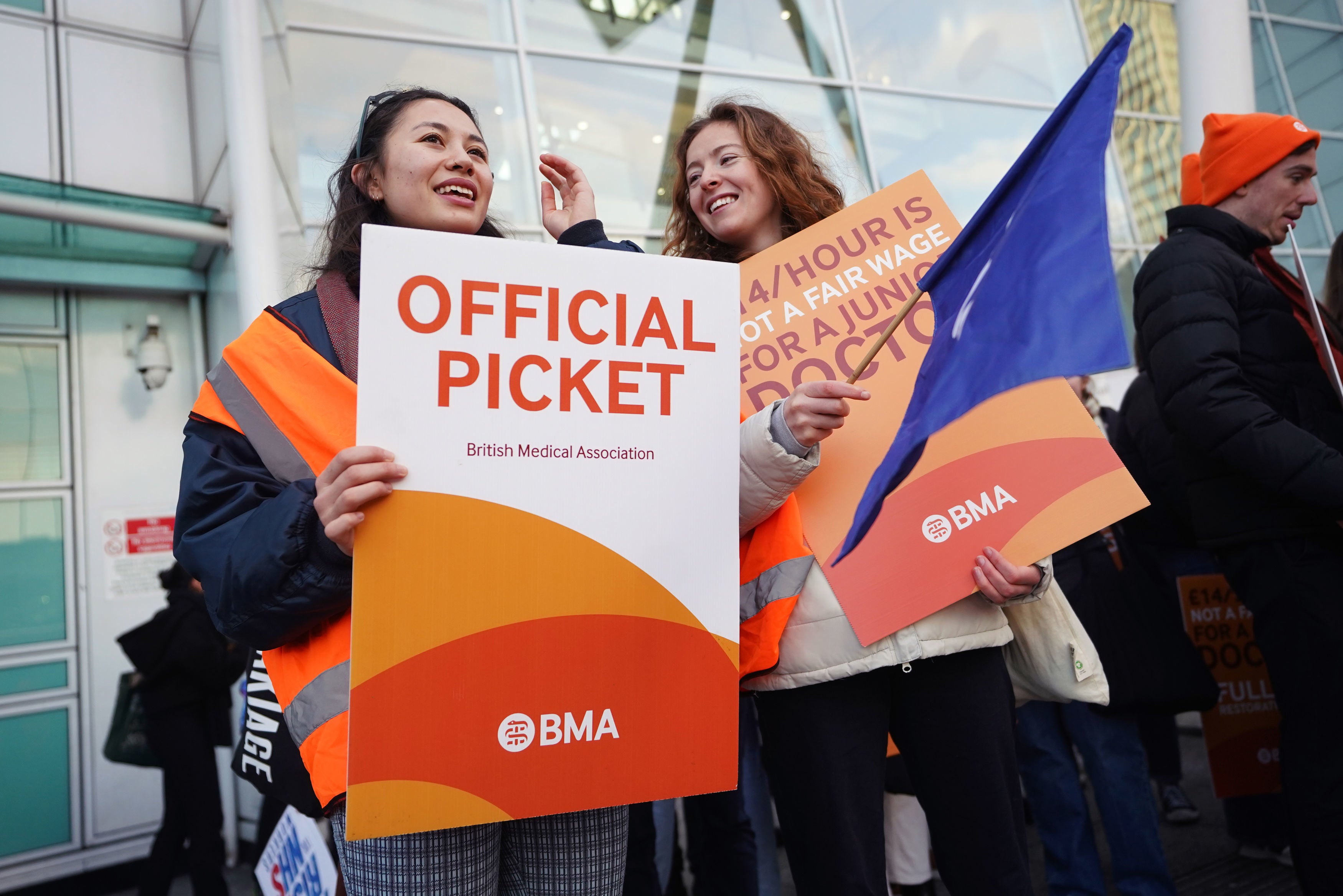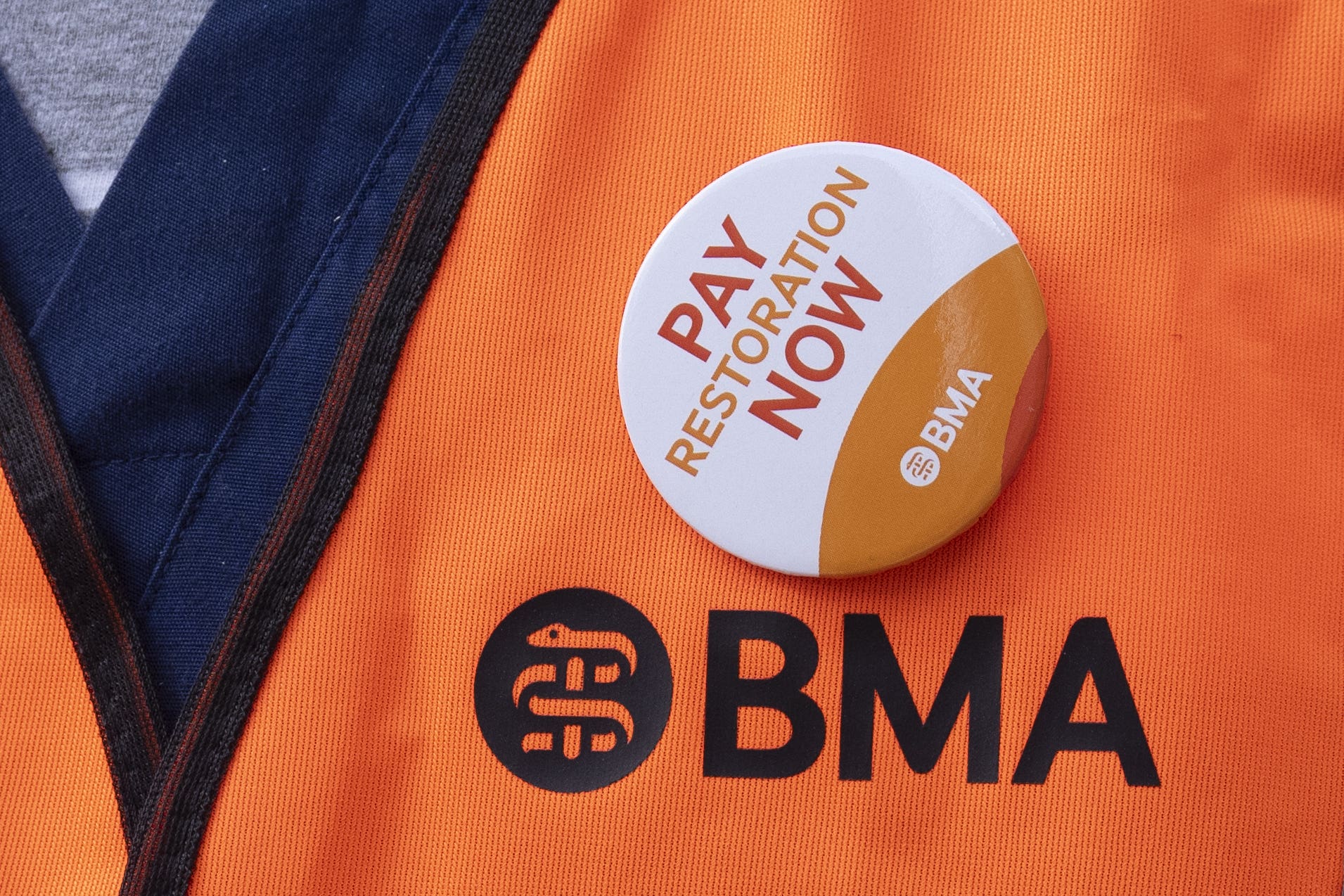Junior doctors’ strike: Why are they taking action and what are their demands?
Ninety eight per cent of members who were balloted voted in favour of 72-hour walkouts last March
Junior doctors will begin a new six-day strike over pay on Wednesday 3 January, prompting NHS England director Sir Stephen Powis to warn the health service faces its toughest start to a year since its founding in 1948.
Staff members belonging to the British Medical Association (BMA) will walk out for 144 hours from 7am on Wednesday until 7am on Tuesday 9 January as part of their ongoing dispute over salary.
“Six consecutive days of industrial action comes at one of our busiest periods,” said Sir Stephen.
“The action will not only have an enormous impact on planned care, but comes on top of a host of seasonal pressures such as Covid, flu, and staff absences due to sickness – all of which is impacting on how patients flow through hospitals.”
Have you been affected by the strike? Email rebecca.thomas@independent.co.uk
He warned of a likely “knock-on effect” bringing disruption to routine care for several weeks but nevertheless urged the public to call 999 and attend A&E departments in cases of life-threatening emergencies as senior consultants are stepping in to provide cover across the strike days.
The latest walkout follows a three-day strike just prior to Christmas, part of a series of protests that began last March and were extended the following August after some 98 per cent, or 43,400, junior doctors belonging to the BMA backed further action without a new deal being agreed between union negotiators and the government.
Below, we look at how much junior doctors are paid, what they want and how industrial action could affect the health service.
Why are junior doctors going on strike and what are their demands?
The BMA is asking the government to reverse a real-term pay cut experienced by the doctors since 2009.
The union has estimated that between 2009 and 2022, junior doctors in England have had a 26 per cent real terms pay cut due to below-inflation pay rises, according to the BMA.
To rectify this, the government would need to award doctors a 35 per cent increase for 2022-23, according to the BMA. However, union leads have previously said is a starting point for negotiations.
Following a month-long negotiation period in November 2023, the BMA’s junior doctor’s committee announced it would hold fresh strikes in December 2023 and January 2024 after talks broke down.
In a BMA survey conducted last year, which received 3,000 responses, 60 per cent of junior doctors reported low morale and 51 per cent described their desire to continue working in the NHS as low.

When did junior doctors last strike and what happened?
In 2016, junior doctor members of the BMA carried out three days of strike action over changes proposed by the government to their contracts. The plan was to reclassify doctors’ normal working week to include Saturdays and late evening working.
Then-health secretary Jeremy Hunt said the new contract would improve patient care at the weekends but junior doctors said it would incentivise unsafe staffing rosters, put patient care at risk and amount to pay cuts of up to 30 per cent.
Three strike days followed but the dispute was eventually resolved when junior doctors voted to take a multi-year pay offer from the government. That guaranteed them a 2 per cent pay increase in 2022-23.
That agreement meant junior doctors have not since been included in the annual review of the Doctors’ and Dentists’ Remuneration Body, which makes independent recommendations on wage increases to the government.

How much are junior doctors paid?
Under the 2016 contract junior doctors’ basic pay, depending on their seniority, ranges from £29,384 to £58,398.
According to Full Fact, all junior doctors will earn £14.09 per hour in basic pay.
According to the recruitment website Glassdoor, as of February 2023, the average junior doctor’s salary in Canada was $110,361, which is equivalent to £68,133.
Junior doctors in Australia earn an average of £70,000 Australian dollars – around £40,000, according to the site.

How could the strikes impact the NHS?
During the 2016 strikes, consultants and senior doctors covered the shifts of junior doctors who walked out and emergency care was not that badly impacted.
According to The British Medical Journal, during the 2016 strikes, 300,000 operations were cancelled, while A&E attendances dropped by nearly 7 per cent.
The strike that took place from 19 to 22 December and the one now scheduled for early January arrive during what is the hardest time of year for the NHS, particularly for emergency care services, as Sir Stephen indicated.
One hospital has already been forced to temporarily close at various points due to the strikes leaving it without sufficient staff numbers.
Leading health and patient organisations have warned that the strikes could lead to patients being “stranded” in hospital, despite being ready to go home.
Since December 2022, the NHS has seen more than 1 million patient appointments cancelled due to strikes and incurred an estimated £1 billion in costs.
Join our commenting forum
Join thought-provoking conversations, follow other Independent readers and see their replies
Comments
Bookmark popover
Removed from bookmarks